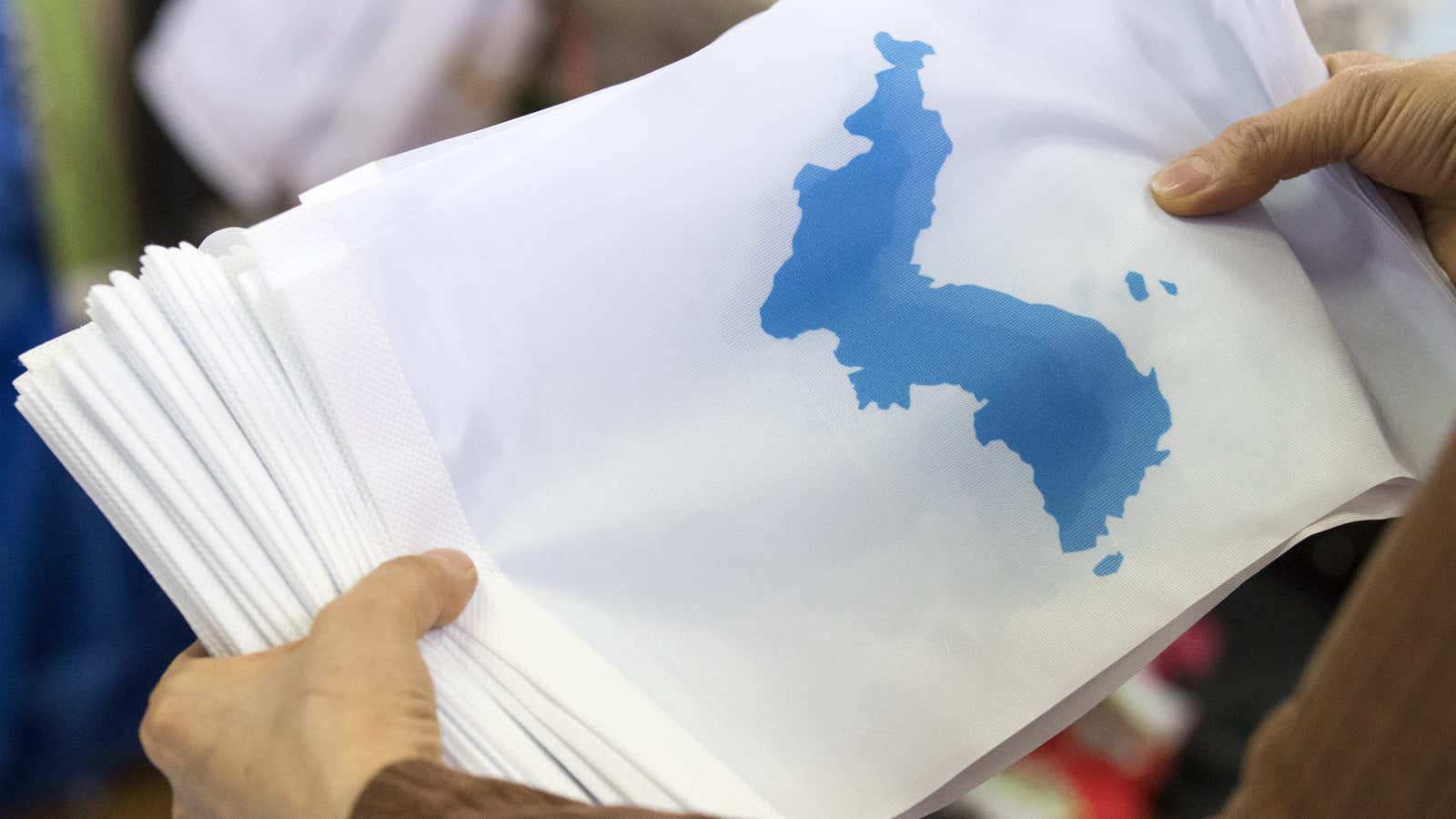Update Feb. 6: South Korea’s foreign ministry said that it would not use the unified Korean flag that depicts the disputed Liancourt Rocks during the Olympics.
The unified Korean flag under which North and South Korean athletes will march under at the upcoming Winter Olympics appears to show nothing more than the Korean peninsula in light blue against a white background.
That’s not what Japan sees.
Japan’s government today (Feb. 5) said it has lodged a protest against the flag, which displays the tiny Liancourt Rocks controlled by South Korea. However, Japan also claims the disputed islets, which are known as Dokdo in Korean and Takeshima in Japanese. Chief cabinet secretary Yoshihide Suga called the flag “unacceptable” and “extremely regrettable.”
The flag was flown yesterday (Feb. 4) during a friendly women’s ice hockey match between the joint North-South Korean team and Sweden.
The flag was always bound to anger Japan—and may have intended to do so. The original unified flag in 1990 only showed the Korean peninsula and Jeju island, but the Liancourt Rocks were added to a later version for the 2003 Asian Winter Games held in Japan.
When a maritime dispute surrounding Socotra Rock—which lies squarely between Japan, South Korea, and China—flared up in 2006, the tiny isle was also added to the flag.
The territorial dispute over the islets has been a long-running source of tension between the two countries, and has flared up repeatedly in recent months. In November, during US president Donald Trump’s visit to Asia, South Korea made a point of including in Trump’s banquet in Seoul a shrimp from Dokdo. Suga also expressed his dissatisfaction at the decision. Last month, Japan opened a permanent exhibition in Tokyo promoting its claims to Takeshima/Dokdo, which Seoul strongly protested.
More recently, there was speculation over whether Japanese prime minister Shinzo Abe would attend the Winter Olympics in Pyeongchang, as relations between the two countries turned frosty over another thorny issue—that of comfort women, or Korean women who were forced to work in brothels to serve Japanese soldiers in World War II. South Korean president Moon Jae-in’s government has challenged a 2015 landmark deal between the two countries over comfort women, leading to speculation that Abe could skip the games. Abe later announced he would attend and meet with Moon to discuss the comfort women issue among other things.
